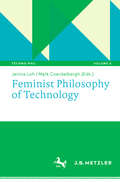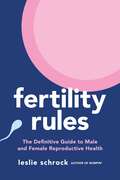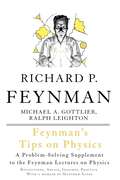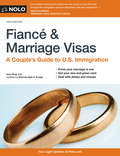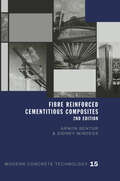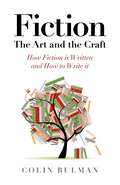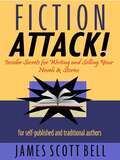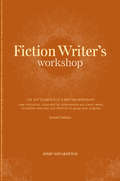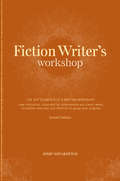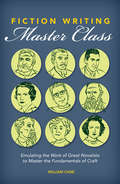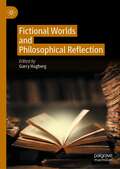- Table View
- List View
Feminist Philosophy of Technology (Techno:Phil – Aktuelle Herausforderungen der Technikphilosophie #2)
by Mark Coeckelbergh Janina LohThere has been little attention to feminism and gender issues in mainstream philosophy of technology and vice versa. Since the beginning of the so-called »second wave feminism« (in the middle of the 20th century), there has been a growing awareness of the urgency of a critical reflection of technology and science within feminist discourse. But feminist thinkers have not consistently interpreted technology and science as emancipative and liberating for the feminist movement. Because technological development is mostly embedded in social, political, and economic systems that are patriarchally hierarchized, many feminists criticized the structures of dominance, marginalization and oppression inherent in numerous technologies. Therefore, the question of defining and ascribing responsibility in technics and science is essential for this anthology – regarding for instance the technological transformation of labor, the life in the information society, and the relationship between humans and machines.
Feminists Who Changed America, 1963-1975
by Nancy F. Cott Barbara J. LoveDocumenting key feminists who ignited the second wave women's movement Barbara J. Love's Feminists Who Changed America, 1963-1975 will be the first comprehensive directory to document many of the founders and leaders (including both well-known and grassroots organizers) of the second wave women's movement. It tells the stories of more than two thousand individual women and a few notable men who together reignited the women's movement and made permanent changes to entrenched customs and laws. The biographical entries on these pioneering feminists represent their many factions, all parts of the country, all races and ethnic groups, and all political ideologies. Nancy Cott's foreword discusses the movement in relation to the earlier first wave and presents a brief overview of the second wave in the context of other contemporaneous social movements.
Feng Shui Book: Bring Good Luck to Your Home (Book-in-a-box Ser.)
by Jo RussellBased on the best-selling Book-in-a-Box kits, The Feng Shui Book is packed full of practical information and tools to teach you the principles of chi energy flowing through your home. You can now measure it room by room, and recognize and activate the good luck areas. This is feng shui made easy!
Feng Shui Made Easy, Revised Edition: Designing Your Life with the Ancient Art of Placement
by William SpearThe first edition, released in 1995, was lauded by seasoned practitioners and beginners alike. And no wonder. While most of the early English-language books on feng shui were dauntingly mystical or relied on complex calculations or culturally specific design practices, Feng Shui Made Easy took a more holistic approach, clearly explaining the fundamentals while guiding readers on an inner journey of understanding.Thoughtfully written and beautifully illustrated, the book is structured around an "architecture of consciousness" that is really the inner landscape. The book explores each "house" of the bagua--the chart representing one's journey through life; relationships with parents, loved ones, and community; creativity; spirituality; and connectedness to the source of life--and the symbolism of the corresponding I Ching trigram. Feng Shui Made Easy helps readers discover the nature of these connections, as well as learn what obstructions must be removed to change fixed patterns of behavior and restore balance, harmony, and inner peace--a process that, when combined with external adjustments, results in increased success and lasting change in all areas of life.This revised edition expands on the author's intuitive approach with new sections on health, children's environments, and ecological concerns and sustainable practices. The author also corrects misconceptions about feng shui and uses fascinating case studies to share valuable insights he gained from interactions with his clients and readers.From the Trade Paperback edition.
Fentanyl: From the Labs to the Streets (Routledge Advances in International Relations and Global Politics)
by Jonathan D. Rosen Sebastián A. CutronaThe ongoing opioid epidemic in the U.S. is just a glimpse of a complex ecosystem characterized by the interaction of multifaceted actors from various countries around the world cooperating across different stages of the global supply chain.In Fentanyl: From the Labs to the Streets, twenty-one experts provide a comprehensive multidisciplinary analysis of the fentanyl supply chain, guiding the reader through the complex supply chain, the nature of criminal and state actors, and the linkages between different regions around the globe. Four parts divide the book, each one showcasing a relevant phase within the global fentanyl supply chain as well as the main mechanisms and processes shaping them. The chapters analyze the fentanyl trade from different levels of analysis while also maintaining synergies between chapters in their treatment of similar, interwoven issues related to the various phases of the fentanyl supply chain, the role of criminal organizations, and some law enforcement practices.Fentanyl will be an excellent resource to students and researchers across the social sciences and particularly in political science, international relations, and criminology. It will also appeal to scholars working on drug policy, epidemiology, illegal markets, organized crime, and policing.
Fermat's Enigma: The Epic Quest to Solve the World's Greatest Mathematical Problem
by Simon Singhxn + yn = zn, where n represents 3, 4, 5, ...no solution"I have discovered a truly marvelous demonstration of this proposition which this margin is too narrow to contain."With these words, the seventeenth-century French mathematician Pierre de Fermat threw down the gauntlet to future generations. What came to be known as Fermat's Last Theorem looked simple; proving it, however, became the Holy Grail of mathematics, baffling its finest minds for more than 350 years. In Fermat's Enigma--based on the author's award-winning documentary film, which aired on PBS's "Nova"--Simon Singh tells the astonishingly entertaining story of the pursuit of that grail, and the lives that were devoted to, sacrificed for, and saved by it. Here is a mesmerizing tale of heartbreak and mastery that will forever change your feelings about mathematics.
Fermentation for Beginners: The Step-by-Step Guide to Fermentation and Probiotic Foods
by Drakes PressWith straightforward guides, 60 recipes, and step-by-step instructions, Fermentation for Beginners takes the stress out of at-home fermentation. Fermented foods are a delicious and rich source of nourishment. However, many beginners are skittish about starting the process of fermentation for the first time. Whether you are trying fermentation to improve your health, or just want to explore this time-tested culinary skill, this guide will show you the art of fermentation and the science of probiotic foods. Fermentation recipes include Garlic Dill Pickles, Pear Chutney, Greek-Style Yogurt, Tempeh, Sourdough Baguettes, Corned Beef, Red Wine Vinegar, Basic Beer, Basic Wine, and much more!Fermentation for Beginners will show you how and why to ferment your own foods, with:Delicious Recipes—Provides step-by-step instructions for safe and effective fermentationHelpful Tips—Covers all the ingredients and equipment you need to start fermenting at homeAn Overview—Explains the science behind fermentationWith the right combination of microbes and a little skill, Fermentation for Beginners will give you all the tools you need to start fermenting your own foods right away!
Fermented Foods for Health: Use the Power of Probiotic Foods to Improve Your Digestion, Strengthen Your Immunity, and Prevent Illness
by Deirdre Rawlings“[M]ore than a mere cookbook . . . a solid volume of science and cookery that offers a wealth of information for those looking to improve their health.” —Library JournalFermented foods have shown to be beneficial for a number of health conditions including candida overgrowth, IBS and digestive difficulties, sugar/carb cravings, and other inflammatory disorders. What’s more, science is starting to show that our modern lifestyle of completely eschewing bacteria via pasteurized foods, hand sanitizers, disinfectants, and antibiotics is actually making us more, not less, susceptible to illness and allergies. Regular inclusion of fermented foods in the diet naturally combats bad bacteria and strengthens the immune system. Fermented Foods for Health includes meal plans of fermented foods for addressing specific ailments and repairing the metabolism. Seventy-five delicious recipes show readers how to ferment everything from meats to vegetables, fruits, and dairy—and how to utilize each of them for specific health benefits such as balancing the body’s PH, increasing enzyme production, and strengthening immunity.
Ferns of Florida: A Reference and Field Guide (Reference and Field Guides)
by Gil NelsonThis is the first field guide in 25 years to treat Florida's amazing variety of ferns. Color plates feature more than 200 images, some of which include rare species never before illustrated in color. Includes notes on each species growth form and habit, as well as general remarks about its botanical and common names, unique characteristics, garden use, and history in Florida. All professional or amateur botanists, plant lovers, and gardeners will want this important book in their libraries.
Fertility Rules: The Definitive Guide to Male and Female Reproductive Health
by Leslie SchrockThe ultimate science-backed approach to understanding fertility.Leslie Schrock is back after the breakout success of Bumpin&’ with the first preconception guide for both male and female fertility. Based on cutting-edge science, Fertility Rules offers a holistic plan for every age and stage of the process, whether you&’re planning to conceive or in the throes. Unlike some other fertility books, it also includes practical content tailored to help the mental health of prospective parents. Tackling fertility from multiple angles, from increasing sperm count and reducing exposure to endocrine disrupting chemicals to navigating IVF, and with Schrock&’s trademark humor and candor, she leaves you prepared to face the joys and challenges of making a baby—and excited to get started.
Fever Hospital: A History of Fairfield Infectious Diseases HospitaL
by W K AndersonInfectious diseases have threatened life and social order throughout human history, inducing deep and pervasive fear. The story of Fairfield Hospital is central to the story of infectious diseases in Victoria, and is thus a significant chapter in Australia's history. Fairfield Infectious Diseases Hospital began life in 1904 as a fever hospital. It treated patients for typhoid, diphtheria, cholera and smallpox, and grappled with epidemics of polio and scarlet fever. It later became one of the world's foremost centres for the research and treatment of infectious diseases, especially HIV/AIDS. And then it was closed, in 1996, amid controversy, protest and distress. Fever Hospital is an invaluable record of the work and achievements of Fairfield. W. K. Anderson sets these achievements in the context of Australian developments in medicine and health. He describes important initiatives in research, medical treatment and patient care. He traces a century of change in organisational structure and personnel. The combined expertise of the Fairfield Hospital team is now scattered. But Anderson, in gathering together the fruits of their knowledge, experience and skill, has ensured that the story of a remarkable and much-loved hospital is not lost to us. Fever Hospital is a valuable social and institutional history. But above all it is a faithful, tangible and generously illustrated record of a great hospital, written for the people who worked at Fairfield and for those who found healing and comfort there.
Feynman's Tips on Physics: Reflections, Advice, Insights, Practice
by Richard P. Feynman Michael A GottliebFeynman's Tips on Physics is a delightful collection of Richard P. Feynman's insights and an essential companion to his legendary Feynman Lectures on Physics With characteristic flair, insight, and humor, Feynman discusses topics physics students often struggle with and offers valuable tips on addressing them. Included here are three lectures on problem-solving and a lecture on inertial guidance omitted from The Feynman Lectures on Physics. An enlightening memoir by Matthew Sands and oral history interviews with Feynman and his Caltech colleagues provide firsthand accounts of the origins of Feynman's landmark lecture series. Also included are incisive and illuminating exercises originally developed to supplement The Feynman Lectures on Physics, by Robert B. Leighton and Rochus E. Vogt.Feynman's Tips on Physics was co-authored by Michael A. Gottlieb and Ralph Leighton to provide students, teachers, and enthusiasts alike an opportunity to learn physics from some of its greatest teachers, the creators of The Feynman Lectures on Physics.
Fiance and Marriage Visas
by Ilona Bray JdYou're engaged or married to a U.S. citizen or permanent resident, and all you want is the right to be together in the U.S. Should be easy, right? It's not. Information can be hard to find, the government bureaucracy isn't helpful, delays are inevitable. Fortunately, this easy-to-use guide puts all the information you need in one place. Fiancé & Marriage Visas makes obtaining a visa and green card as painless as possible. It helps you make sure you're truly eligible and decide the fastest and best application strategy -- whether you're married or unmarried, living in the U.S. or overseas. With this friendly, comprehensive book, you can: make sure you won't face barriers to immigrating plan the best application strategy make your way through the bureaucracy collect, prepare, and manage forms and paperwork prepare for meetings with U.S. officials learn how to prove your marriage is real deal with the two-year testing period find out what to do if your application is denied Plus, Fiancé & Marriage Visas gives you helpful advice on protecting and renewing your green-card status. It also provides samples of essential forms to guide you, and shows you how to find them online. This edition is updated with tips for immigrating same-sex couples, new guidance on the provisional waiver of unlawful presence, the latest financial requirements for sponsors, and more.
Fiancé and Marriage Visas: A Couple's Guide to U.S. Immigration
by Ilona BrayObtain a visa and stay with your spouse in the U.S. You're engaged or married to a U.S. citizen or permanent resident, and all you want is the right to be together in the U.S. Should be simple, right? It's not. The pile of application forms can be overwhelming, the bureaucracy isn't helpful and delays are inevitable. But the good information in this book will help you succeed. Fiancé & Marriage Visas makes obtaining a visa and green card as painless as possible. It helps you make sure you're truly eligible and decide the fastest and best application strategy -- whether you're married or unmarried, living in the U.S. or overseas. With this friendly, comprehensive book, you can: discover the fastest and best application strategy avoid common - and serious - mistakes prepare for meetings with officials prove your marriage is real - not a fraud deal with the two-year testing period for new marriages. Plus, Fiancé & Marriage Visas gives you helpful advice on protecting and renewing your green-card status. It also provides samples of essential forms to guide you, and shows you how to find them online. This edition covers the new provisional waiver opportunity, the availability of same-sex marriage-based visas, and changes to application processes. It also provides checklists and sample forms throughout.
Fiancé and Marriage Visas: A Couple's Guide to U.S. Immigration
by Ilona BrayThe book that’s helped thousands of couples around the world You’re engaged or married to a U.S. citizen or permanent resident, and all you want is the right to be together in the United States. Should be simple, right? It’s not. The pile of application forms can be overwhelming, the bureaucracy isn’t helpful, and delays are inevitable. This book will help you succeed. Discover the fastest and best application strategy. Avoid common—and serious—mistakes. Prepare for meetings with officials. Prove your marriage is real—not a fraud. Deal with the two-year testing period for new marriages. The 10th edition covers the Trump travel ban on citizens of certain countries, changes to fees and application processes, as well as heightened scrutiny for visa fraud. It also provides checklists and sample forms throughout. Use this book if you are living in the United States or overseas and: your fiancé is a U.S. citizen your spouse is a U.S. citizen, or your spouse is a U.S. permanent resident.
Fibre Reinforced Cementitious Composites
by Arnon Bentur Sidney MindessAdvanced cementitious composites can be designed to have outstanding combinations of strength (five to ten times that of conventional concrete) and energy absorption capacity (up to 1000 times that of plain concrete). This second edition brings together in one volume the latest research developments in this rapidly expanding area. The book is split
Fiction - The Art and the Craft: How Fiction is Written and How to Write it
by Colin BulmanFiction - The Art and the Craft is a highly practical exposition of all the major elements of fiction - such as plot, conflict, suspense, the hook, inference, character and dialogue - and how these elements are combined to make a compelling story. Using examples from well-known works of literature and incorporating exercises, research suggestions and activities, this informative, interesting and accessible book is a must-read for any author.
Fiction Attack!: Insider Secrets For Writing And Selling Your Novels And Stories
by James BellHow to Write Fiction That Sells Across All Channels . . . Just what are the inner secrets of selling fiction to an ever-growing audience of readers? It’s not just the same old tips you see repeated over and over. It’s almost always a matter of specialized tools and techniques bestselling authors use––consciously or unconsciously––to break away from the slush into bestseller territory. Whether traditionally or self published––or both––the writers doing these things in their fiction are the ones generating substantial income and happy fans. Now these keys are revealed. Bestselling author and #1 bestselling writing coach James Scott Bell brings you dozens of powerhouse techniques and strategies, many of which are adapted from his popular writing posts at The Kill Zone blog. Among the many subjects covered are: * The 10 commandments all writers must follow. * The What-Do-You-Want-to-Say-to-Me test. * The cure for overstuffed dialogue. * Must you show compassion for the bad guys? * What makes a novel a page turner? * How not to write your novel. * The two things every novel needs, no matter the genre. * The things you never, ever do in your opening pages. * The myth of the “inciting incident.” * How much exposition up front? * Why “Show, Don’t Tell” might be overrated. * The #1 secret in using First Person Point-of-View * How to use dialogue as a weapon. * Where to get plots. * The secret to adding fireworks to your style. * The answer to the flashback quagmire. * The art of listening to the book. * How to find the "premise" of your novel. * How to write a novella. And many more. PLUS, interviews with some of the best writers working today, including: Sandra Brown, Douglas Preston and Lincoln Child, Jonathan Kellerman, Barry Eisler, Joseph Finder, Peter Straub, Stephen Coonts, Katherine Neville, Andrew Gross, Lisa Jackson, Kathy Reichs, M.J. Rose If you’re serious about selling your fiction, Fiction Attack! is your battle plan for breakthrough. Praise for the writing instruction of James Scott Bell: "I had a novel with problems I didn't know how to solve. After James Scott Bell's class, I knew the solutions. This was easily the most practical writing class I ever attended. I sold my novel using what I learned." — Darrell James, author of Nazareth Child "I needed advice before I tried to write a novel. The usual axiom — write what you know — wasn't helpful. So I turned to James Scott Bell. He taught me how to structure a great entrance — the equivalent of gliding down a spiral staircase in a wedding gown — and how to keep the next 400 pages from becoming as hopelessly tangled as the crumpled papers and wads of gum in my old desk. My novel sold." – Sarah Pekkanan, author of The Opposite of Me
Fiction Writer's Wokrshop
by Josip NovakovichMaster the Elements of the Writing Workshop The great paradox of the writing life is that to be a good writer, you must be both interested in the world around you and comfortable working in solitude for hours on end. Fiction Writer's Workshop is designed to help you foster a strong sense of independence#150;of being and thinking on your own, of becoming self-evaluative without being self-critical#150;in order to accomplish what others seek in classroom groups. In this comprehensive guide, award-winning writer and teacher Josip Novakovich explores every aspect of the art of fiction and provides all the tools and techniques you'll need to develop day-to-day discipline as well as a personal writing style, such as: More than 100 writing exercises, including dozens that are new to this edition, that challenge you to experiment with diverse writing styles Specific statements of purpose for each exercise, to help guide you and instruct you at every step of the creative process Self-critique questions to help you assess your work and identify strengths and weaknesses before moving on to the next lesson The full text of eight acclaimed short stories, with analysis and exercises, to provide models for your own writing and help reinforce the lessons you've learned The practical, insightful methods offered in this workshop will clarify your voice, broaden your perspective, and strengthen your fiction.
Fiction Writer's Workshop: The Key Elements of a Writing Workshop
by Josip NovakovichMaster the Elements of the Writing Workshop The great paradox of the writing life is that to be a good writer, you must be both interested in the world around you and comfortable working in solitude for hours on end. Fiction Writer's Workshop, Second Edition, is designed to help you foster a strong sense of independence#151;of being and thinking on your own, of becoming self-evaluative without being self-critical#151;in order to accomplish what others seek in classroom groups. In this comprehensive guide, award-winning writer and teacher Josip Novakovich explores every aspect of the art of fiction and provides all the tools and techniques you'll need to develop day-to-day discipline as well as a personal writing style, such as: More than 100 writing exercises, including dozens that are new to this edition, that challenge you to experiment with diverse writing styles Specific statements of purpose for each exercise, to help guide you and instruct you at every step of the creative process Self-critique questions to help you assess your work and identify strengths and weaknesses before moving on to the next lesson The full text of eight acclaimed short stories, with analysis and exercises, to provide models for your own writing and help reinforce the lessons you've learned The practical, insightful methods offered in this workshop will clarify your voice, broaden your perspective, and strengthen your fiction.
Fiction Writing Master Class: Emulating the Work of Great Novelists to Master the Fundamentals of Craft
by William CaneWant to find your voice? Learn from the best! In your development as a writer, you've likely been told to develop your own unique writing style, as if it were as simple as pulling it out of thin air. But finding your voice isn't easy--it requires time, practice, and a thorough understanding of how great fiction is written. Fiction Writing Master Class analyzes the writing styles of twenty-one superior novelists including Charles Dickens, Edith Wharton, Franz Kafka, Flannery O'Connor, Ray Bradbury, and many others. This fascinating and insightful guide mines the writing secrets of these exceptional authors and shows you how to use them to develop a writing style that stands out in a crowd. You'll discover how to: Create characters as memorable as Herman Melville's Captain Ahab Master point of view with techniques from Fyodor Dostoevsky Pick up the pace by keeping your sentences lean like Ernest Hemingway Incorporate sensual details like James Bond creator Ian Fleming Add suspense to your story by following the lead of horror master Stephen King And that's not all, Fiction Writing Master Class is your key to understanding and implementing the proven techniques of history's greatest authors, taking your writing to a whole new level of excellence in the process.
Fictional Worlds and Philosophical Reflection
by Garry HagbergThis edited collection investigates the kinds of philosophical reflection we can undertake in the imaginative worlds of literature. Opening with a look into the relations between philosophical thought and literary interpretation, the volume proceeds through absorbing discussions of the ways we can see life through the lens of literature, the relations between philosophical saying and literary showing, and some ways we can see the literary past philosophically and assess its significance for the present. Taken as a whole, the volume shows how imagined contexts can be a source of knowledge, a source of conceptual clarification, and a source of insight and understanding. And because philosophical thinking is undertaken, after all, in words, a heightened sensitivity to the precise employments of our words – particularly philosophically central words such as truth, reality, perception, knowledge, selfhood, illusion, understanding, falsehood – can bring a clarity and a refreshed sense of the life that our words take on in fully-described contexts of usage. And in these imagined contexts we can also see more acutely and deeply into the meaning of words about words – metaphor and figurative tropes, verbal coherence, intelligibility, implication, sense, and indeed the word “meaning” itself. Moving from a philosophical issue into a literary world in which the central concepts of that issue are in play can thus enrich our comprehension of those concepts and, in the strongest cases, substantively change the way we see them. With a combination of conceptual acuity and literary sensitivity, this volume maps out some of the territory that philosophical reflection and literary engagement share.
Fidget Spinner Tricks, Hacks & Mods: Amaze Your Friends with Spectacular Spinner Secrets!
by Cara StevensKids are obsessed with fidget spinners, unique, entertaining devices that are purported to help anxiety, ADHD, and other disorders, as well as generally distract or entertain kids, depending on how you look at it. Introducing the first book that shows kids how to their fidget-spinning to the next level, which includes: An introduction to fidget spinning Beginner, intermediate, and advanced tricks DIY spinner building and design instructions Hack and modifications And other tips and tricks that will make anyone a master spinner in no time! From DIY spinners made from inexpensive ball bearings to flipping tricks and cool mods, this book be will be a hit with any fidget spinner-obsessed kid!
Field & Stream Bowhunting Handbook, New and Revised (Field & Stream)
by Bob RobbIf you love a challenge and treasure a sport that requires commitment; if you enjoy being in the woods; and if you like getting as close to your quarry as possible, then bowhunting is for you. The Field & Stream Bowhunting Handbook includes information on how to choose the best gear; important safety tips; how to hunt different types of game; how to avoid being detected; how to shoot accurately; and much more.
Field Book of Western Wild Flowers: The Ultimate Guide to Flowers Growing West of the Rocky Mountains
by Margaret ArmstrongMargaret Armstrong, a prolific book cover designer and illustrator, spent a few years traveling around the western United States at the beginning of the twentieth century, and in 1911 she was one of the first women to descend to the floor of the Grand Canyon. There she discovered some new flower species and began writing and illustrating the exquisite and thorough Field Book of Western Wildflowers.This was the first comprehensive handbook to supply detailed information about the plethora of flowers growing in the western United States and includes detailed information on seventy-five plant families, like water-plantain, lily, buttercup, poppy, mustard, hydrangea, plum, rose, cactus, wintergreen, figwort, and valerian families, and many others.Armstrong includes information on key characteristics of each species, including height, leaf and petal features, colors, where each flower can most likely be found, ideal conditions they flourish in, and much more.
